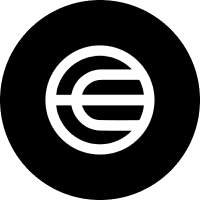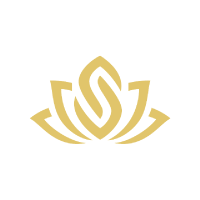


Harga DAO MakerDAO
Konverter DAO ke IDR
Bagaimana perasaan kamu tentang DAO Maker hari ini?
Tentang DAO Maker (DAO)
Apa itu DAO Maker?
DAO Maker adalah platform terdesentralisasi di sektor mata uang kripto dan blockchain, yang berfungsi sebagai inkubator yang menyediakan alat dan layanan untuk startup kripto tahap awal. Perusahaan ini terkenal dengan DAO Launchpad-nya, produk utama yang memungkinkan holder token DAO untuk berinvestasi dalam proyek-proyek masa depan, bertindak sebagai jembatan antara proyek-proyek inovatif dan investor potensial. Platform ini telah berperan penting dalam memprakarsai proyek-proyek penting seperti My Neighbor Alice, Orion Protocol, Seascape Network, dan Infinity Pad. DAO Maker tidak hanya berfokus pada proyek-proyek yang diinkubasi, tetapi juga menampilkan proyek-proyek yang telah melewati pemeriksaan penyaringan yang cermat, memastikan bahwa investor memiliki akses ke proyek-proyek kripto yang berkualitas tinggi dan dapat diandalkan.
Didirikan oleh Christoph Zaknun dan Giorgio Marciano, dengan Zaknun sebagai CEO dan Marciano sebagai CTO, DAO Maker bertujuan untuk mendemokratisasi akses venture capital, memperluasnya kepada investor ritel global, yang sebagian besar memiliki sumber daya yang terbatas. Dengan memberdayakan orang-orang biasa untuk membangun modal mereka dengan aman, DAO Maker meningkatkan standar hidup jutaan orang dan menghasilkan sumber pendanaan baru untuk inovasi global. Platform ini dibangun dengan fokus pada pembangunan dan keterlibatan komunitas, dengan keyakinan bahwa keberhasilan proyek blockchain bergantung pada komunitas yang kuat dan bersemangat yang secara aktif terlibat dalam pengembangan dan pertumbuhan proyek.
Sumber
Situs Web Resmi: https://daomaker.com/
Bagaimana Cara Kerja DAO Maker?
DAO Maker beroperasi dengan memungkinkan pengguna untuk meningkatkan hak kepemilikan mereka melalui berbagai penawaran seperti Strong Holder Offerings (SHO), penjualan SEED, dan Dynamic Coin Offerings (DYCO). Pengguna berpartisipasi dalam penjualan dan memberikan DAO Power mereka kepada mereka, sehingga meningkatkan peluang mereka untuk mendapatkan alokasi. DAO Maker mengklasifikasikan pengguna ke dalam beberapa tahap berdasarkan jumlah DAO yang dibelanjakan, dan setiap tahap memberikan peluang lebih besar untuk menang. Produk andalan platform ini, DAO Launchpad, menawarkan penawaran token melalui SHO dan DYCO pribadi dan publik, yang mengharuskan pengguna untuk staking DAO di brankas platform untuk berpartisipasi dalam penawaran ini.
DAO Maker juga memperkenalkan produk inovatif seperti Venture Bonds, memperluas ranah partisipasi ritel dalam startup kripto. Produk ini menawarkan obligasi dari startup kripto dan menggunakan dana DAO Maker ke pasar pinjaman dengan agunan berlebih untuk mendapatkan pengembalian, yang kemudian dikonversi menjadi modal dan didistribusikan ke startup untuk memfasilitasi pertumbuhan dan perkembangan. Kriteria seleksi yang ketat dari platform ini memastikan bahwa hanya proyek-proyek blockchain dengan kualitas terbaik yang dipilih untuk diluncurkan di DAO Pad, menyediakan alokasi yang relatif tinggi untuk peserta yang menang dalam IDO dan menawarkan berbagai layanan untuk proyek-proyek yang dihosting di luar peluncuran token untuk meningkatkan peluang keberhasilan.
Apa Itu Token DAO?
Token DAO adalah token utilitas asli dari DAO Maker. DAO berfungsi sebagai media utama untuk transaksi dan sebagai insentif bagi pengguna yang berpartisipasi. DAO didistribusikan di antara para pengguna sebagai hadiah untuk berpartisipasi dalam kegiatan seperti staking, menyediakan likuiditas, berpartisipasi dalam tata kelola, dan meluncurkan proyek. Token DAO juga berfungsi sebagai token tata kelola platform, yang memungkinkan pengguna yang hold token untuk memberikan suara untuk perubahan pada ekosistem DAO Maker dan memberikan pengguna akses ke fitur eksklusif pada platform, termasuk diskon dan hadiah. Dengan total suplai yang dibatasi sebesar 312 juta, ini tidak bersifat inflatif, dan hadiah yang diberikan oleh setiap brankas hasil dikumpulkan oleh mitra ekosistem DAO Maker.
Dampak DAO Maker terhadap Finansial
DAO Maker membentuk kembali lanskap keuangan dengan menyediakan pendekatan terdesentralisasi yang digerakkan oleh komunitas untuk penggalangan dana dan pengembangan proyek dalam blockchain. Hal ini mendemokratisasi akses ke venture capital, memungkinkan investor ritel di seluruh dunia untuk berinvestasi dalam proyek-proyek kripto berkualitas tinggi dengan aman. Dengan berfokus pada pembangunan komunitas dan menawarkan berbagai alat pengelolaan komunitas seperti mining sosial, program loyalitas, dan gamifikasi, DAO Maker memastikan pertumbuhan dan kesuksesan startup kripto yang baru lahir. Penekanan platform pada desentralisasi dan pemberdayaan pengguna sejalan dengan dasar gerakan DeFi, menghilangkan sentralisasi operasi kripto dan memberi pengguna lebih banyak kekuatan dalam membuat pilihan keuangan.
Apa yang Menentukan Harga Pembuat DAO?
Harga DAO Maker, seperti mata uang kripto lainnya, dipengaruhi oleh banyak faktor, sehingga membuat prediksi harga yang tepat menjadi upaya yang rumit. Tren pasar mata uang kripto, berita, dan analisis memainkan peran penting dalam menentukan harga DAO Maker. Berita mata uang kripto sering kali berisi pengumuman, perkembangan regulasi, dan peristiwa lain yang dapat berdampak signifikan terhadap pasar mata uang kripto dan harga token individu. Misalnya, berita positif tentang kemajuan atau kemitraan DAO Maker dapat meningkatkan permintaan, sehingga menaikkan harga, sementara berita yang tidak menguntungkan atau regulasi mata uang kripto dapat berdampak sebaliknya.
Para penggemar dan pakar mata uang kripto sering kali beralih ke analisis dan grafik mata uang kripto untuk mengukur potensi pergerakan harga DAO Maker. Grafik mata uang kripto dan analisis pasar kripto menyediakan wawasan tentang tren pasar, yang memungkinkan para pemula dan ahli untuk membuat keputusan berdasarkan informasi tentang tempat membeli mata uang kripto dan mengoptimalkan manajemen portofolio kripto mereka. Harga DAO Maker juga tunduk pada volatilitas pasar kripto, yang dapat dipengaruhi oleh pergerakan pasar mata uang kripto yang lebih luas, perubahan adopsi mata uang kripto, dan pergeseran tren mata uang kripto. Calon investor yang ingin membeli DAO Maker dapat melakukannya di exchange terkemuka seperti Bitget, di mana mereka dapat menganalisis strategi perdagangan mata uang kripto dan menilai apakah DAO Maker merupakan investasi kripto terbaik untuk tahun 2023 dan seterusnya.
Laporan analisis AI tentang DAO Maker
Harga Langsung DAO Maker Hari Ini dalam IDR
Riwayat Harga DAO Maker (IDR)
 Harga terendah
Harga terendah Harga tertinggi
Harga tertinggi 
Berapa harga tertinggi DAO Maker?
Berapa harga terendah DAO Maker?
Prediksi Harga DAO Maker
Berapa harga DAO di 2026?
Berapa harga DAO di 2031?
FAQ
Berapa harga DAO Maker saat ini?
Berapa volume perdagangan 24 jam dari DAO Maker?
Berapa harga tertinggi sepanjang masa (ATH) dari DAO Maker?
Bisakah saya membeli DAO Maker di Bitget?
Apakah saya bisa mendapatkan penghasilan tetap dari berinvestasi di DAO Maker?
Di mana saya bisa membeli DAO Maker dengan biaya terendah?
Berita DAO Maker
Pasar DAO Maker
Kepemilikan DAO Maker
Matriks distribusi kepemilikan DAO Maker
Kepemilikan DAO Maker berdasarkan konsentrasi
Alamat DAO Maker berdasarkan waktu kepemilikan

Harga DAO Maker Global
- 1
- 2
- 3
- 4
- 5
Cara Membeli DAO Maker(DAO)

Buat Akun Bitget Gratis Kamu

Verifikasi Akun Kamu

Konversi DAO Maker ke DAO
Bergabunglah di copy trading DAO dengan mengikuti elite trader.
Listing terbaru di Bitget
Beli lebih banyak
Di mana saya dapat membeli DAO Maker (DAO)?
Bagian video — verifikasi cepat, trading cepat

Konverter DAO ke IDR
Peringkat DAO Maker
Insight Bitget

Aset terkait
Info tambahan tentang DAO Maker
Ringkasan koin
Terkait koin
Terkait perdagangan
Trading
Earn
DAO/USDT
Spot

































Data Sosial DAO Maker
Dalam 24 jam terakhir, skor sentimen media sosial untuk DAO Maker adalah 3.3, dan sentimen media sosial terhadap tren harga DAO Maker adalah Bullish. Skor media sosial DAO Maker secara keseluruhan adalah 576, yang berada di peringkat 191 di antara semua mata uang kripto.
Menurut LunarCrush, dalam 24 jam terakhir, mata uang kripto disebutkan di media sosial sebanyak 1,058,120 kali, di mana DAO Maker disebutkan dengan rasio frekuensi 0.01%, berada di peringkat 312 di antara semua mata uang kripto.
Dalam 24 jam terakhir, terdapat total 287 pengguna unik yang membahas DAO Maker, dengan total penyebutan DAO Maker sebanyak 58. Namun, dibandingkan dengan periode 24 jam sebelumnya, jumlah pengguna unik penurunan sebesar 9%, dan jumlah total penyebutan penurunan sebesar 25%.
Di Twitter, ada total 4 cuitan yang menyebutkan DAO Maker dalam 24 jam terakhir. Di antaranya, 50% bullish terhadap DAO Maker, 25% bearish terhadap DAO Maker, dan 25% netral terhadap DAO Maker.
Di Reddit, terdapat 2 postingan yang menyebutkan DAO Maker dalam 24 jam terakhir. Dibandingkan dengan periode 24 jam sebelumnya, jumlah penyebutan penurunan sebesar 60% .
Semua tinjauan sosial
3.3